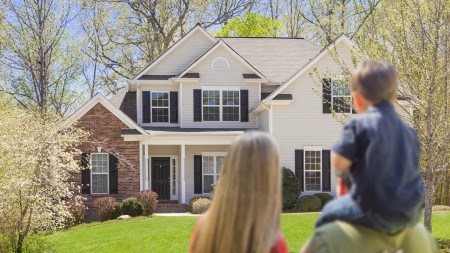How do you get into the property-investment market when times are tough? A property syndicate might be the way to go.
Co-ownership is a great way for multiple people to invest in property, with the intention of “flipping it” or selling it on and sharing the profit. It is becoming increasingly common in South Africa. Chelsea Viljoen of Just Property says “Due to the economic climate, it can be challenging to enter the market, especially as a first-time buyer. As a result, more people are choosing to purchase property with a friend, family member or even a colleague.”
Viljoen specialises in the City Bowl area of Cape Town and has found that Woodstock, Observatory and Salt River offer many such opportunities. “Fixer-uppers, distressed sales and properties that go on auction are popular amongst the investors looking to flip properties. Often savvy investors also approach sellers who have had their properties on the market for many months in the hopes of getting a bargain.”
Like all property buyers, co-owners have the option of taking out a bond on the property or paying cash. Shares in the property can be split according to each party’s contribution – one party may take 40% ownership and the other 60% of the single property. Such share arrangements can be recorded and registered on the title deeds by the Deeds Office. “It is therefore very important to agree and stipulate the share-holdings of each owner before acquiring the property,” says Viljoen. “Failure to stipulate the share-holdings will result in the legal presumption that the co-owners acquired the property in equal shares (50%/50%).”
Viljoen advises that co-owners discuss the following points before acquiring a property:
- What percentage of the property will be held by which co-owner?
- Are your intentions to purchase the property as an investment property and rent it out or will one of the co-owners be living in the property?
- How will the initial deposit amount be paid? Will it be split between the co-owners according to their shares? If not, this should be thoroughly discussed and agreed to (in writing) by all co-owners.
- It is very important to remember that you are jointly and severally responsible for the bond repayments regardless of how you have split your co-ownership and responsibilities. In essence, this means that the bank can recover the full amount from either debtor exclusively or from all of the co-owners in proportion to their shares, whether you are paying your portion or not.
- How will the profits/losses be split should the property be sold? If for example, you own a share of 40% of the property, will you only earn 40% of the proceeds of the sale?
- Discuss and agree on how the co-ownership will be terminated and steps to follow in the event that one co-owner wishes to sell.
- How will the death of a co-owner be dealt with?
- How will you handle disputes? Maybe at some point you will want to renovate and the other co-owner doesn’t think it’s necessary? One of you might wish to give notice to an existing tenant while the other wants to keep the tenant on – how will you settle your differences.
- Don’t forget to discuss regulating access to the bond and the right to withdraw funds from the bond account.
Most of the issues listed above can be dealt with or addressed by drafting a co-ownership agreement, says Viljoen. It’s a good idea to discuss this with an attorney – although it might initially cost you a little bit more to get all of your paperwork in order, it could save you a lot of money in legal costs should a dispute arise and you don’t have an agreement in place. “In such cases, the court will consider all circumstances and make a ruling as to what is fair and reasonable,” warns Viljoen. “When the dispute involves the proceeds of a sale, the court will consider all contributions made by each co-owner, whether it be rates and taxes, maintenance payments etc. The court will also consider any benefit the co-owners have enjoyed, such as staying in the property with a preferential rental arrangement.”
Other factors to consider include:
The extent of the renovations/ upgrades you will undertake: “Determine the overall price of the potential renovation vs. the return/ profit that you can expect,” Viljoen advises. “Is there a demand for the types of renovations/upgrades that you would like to do? Would the total value of your property increase by doing these upgrades? An example: would the value of your property substantially increase by installing a self-flushing toilet in a studio apartment? Is this a priority for purchasers?”
The area: “Is this a high capital growth area? Is this an area that people want to be in? What is the crime like? What are the neighbours like? What have properties in the area been sold for? What is the demographic of the area and does this affect the potential sales price? I have dealt with a landlord who purchased a property in an up-and-coming area, however this specific street was less-gentrified. The property was purchased with the intent to sell it on, but the owner overcapitalized. She was unable to get her price. Eventually, she decided to let the property and now she is playing the waiting game until the area starts improving.”
The reason the current owner is selling? “Establish the extent of the maintenance work to be done. Have you gone through the property’s condition report? Is it structurally sound? Is the property in need of cosmetic upgrades or is there a serious problem that needs to be considered?”
Capital Gains Tax. “In the event that you are flipping and selling your primary residence, you are entitled to earn up to R2 million free of capital gains tax. But if the property being sold is not your primary residence and/or the profit is more than R2 million, a percentage of the profit will go towards capital gains tax.”
The market: “Do a comparative market analysis to determine a realistic market-based sales valuation before you place an offer on a ‘fixer-upper’. You would not want to overcapitalize on a property that is capped at a certain level.”
Do your homework if you’re considering purchasing a property to flip. Do some research on the various property platforms and set alerts for yourself in the price ranges and areas that interest you. If you are not familiar with the current market trends or even where to start, speak to an agent that specialises in a specific area and has experience in flipping properties.
Once you’ve found the right property, Viljoen also recommends that you determine whether the property you are purchasing requires special permits from council for the renovations. Decide whether you will monitor the renovations yourself or employ a property manager.
Then establish a list of trusted contractors you will be happy to work with. Ask them if there are time frames for your renovations and whether they’ll work over the weekends to meet these. Start budgeting for the necessary repairs, the number of months that the property will be vacant, keep some money in the kitty to cover potential delays in the renovation process, finding a tenant or selling the property sold.
How long before one can expect to sell the property? Paul Stevens, CEO of Just Property, is fiercely driving the use of substantiated data across the Just Property franchise network. This is demonstrated as Viljoen bases her answer on the FNB Estate Agents Survey of April 2019. “The trends to come out of that survey showed that, on average, a property is on the market for about 15.3 weeks before being sold, around 10 serious viewers will visit the property before it sells, and there is an average drop of 9.4% in the asking price.”
Viljoen says that she’s found the average selling prices for suitable “flip” properties range from just under R1m to around R1.8m. “Based on the 2019 Lightstone Seminar, the average transaction price for a freehold property is R1 819 313 and for sectional title R1 966 912.”
“If you and your co-owner/s are serious investors and ready to sell, I would recommend employing a sales agent who is an expert in your area,” Viljoen advises. “They will provide you with the necessary area statistics in order to prepare you for what can be expected. Cape Town is unique in the sense that the areas are very diverse. You can range from lower-income areas such as Maitland and Brooklyn to the desirable suburbs of Bantry Bay. And the prices vary accordingly.”




